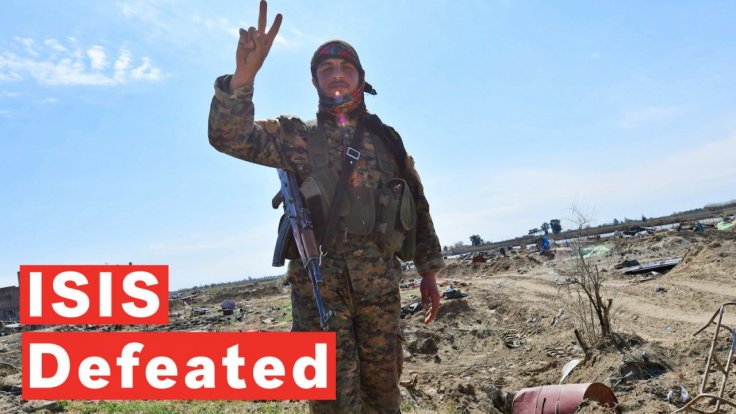The Kurds, which conquered the territorial entity called the Islamic State caliphate on March 23, are now calling on the world to establish an international tribunal to try thousands of suspected members of the Islamic State (IS) in its prison cells.
There has been no word from Western countries about the feasibility of organizing such a tribunal but it is known the United States opposes this move.
"We're not looking at that right now," said James Jeffery, the United States Special Representative for Syria Engagement and the Special Envoy for the Global Coalition to Defeat ISIL.
The Kurds say they hold more than 5,000 IS fighters and are unable to hold onto these captives indefinitely. Then, there are IS wives, widows and children numbering some 100,000 confined to a string of desert camps in eastern Syria.
Abdul Karim Omar, a Kurdish official, said the Kurds are struggling to cope with the multitude of IS fighters and supporters who surrendered before the fall of the last IS enclave at the town of Baghouz al-Fawqani in eastern Syria on March 23.
The Kurds are also calling on countries whose citizens fought for IS and who are now their captives to reclaim these people. Many Western governments, however, staunchly refuse to repatriate their citizens who joined IS amid concerns over the potential security risks they pose.
There is also the legitimate concern IS will launch a comeback. It's always been acknowledged the remnants of the defeated Islamic State (IS) will make a comeback, but next time as an irritating insurgency and never as the same murderous pseudo-state that existed from 2014 to 2019.
The rise of IS, which at the time of its birth in Iraq labelled itself the Islamic State of Iraq and the Levant (ISIL), was born of a peculiar set of historical circumstances unlikely to be repeated. Chief among these was the disenfranchisement of the dominant Sunni Muslim sect in Iraq by the minority Shia, who ruled the country under the late dictator, Saddam Hussein, and in the governments that succeeded him.
Sunni Muslims comprised the military backbone of ISIL. Sunni officers of Saddam's disbanded army led ISIL to its first battlefield victories at Mosul and Raqqa, setting the stage for the foundation of the so-called Islamic State caliphate in 2014.
This terrorist group once boasted it had more than 100,000 men under arms. It controlled the lives of eight to 10 million persons in an area the size of the United Kingdom and was extinguished at Baghouz al-Fawqani.
But the conquerors of IS, the Syrian Democratic Forces (SDF), have always warned IS will revert to the insurgency that gave it birth once the territorial caliphate was obliterated. SDF is currently conducting operations to destroy IS sleeper cells, which have orders to launch suicide and gun attacks on targets of opportunity.
SDF estimates these sleeper cells might consist of anywhere from 10,000 to 20,000 IS fighters primed for action in a guerilla war.
Military analysts said remnants of the defeated caliphate will have to "reset" ISIL, and "correct" its future course. They believe it likely ISIL's current leadership will resurrect the narrative of an oppressed and impoverished Sunni minority as it recruits new converts.
Then, there will be a nostalgia to resurrect the defeated caliphate.
ISIL announced the switch to guerrilla warfare in July. It has resurfaced in Anbar and Nineveh provinces in Iraq and is launching car bombings and night operations in remote rural villages.
This article was first published in IBTimes US. Permission required for reproduction.









